Imagine sinking into a well-crafted sofa at the end of a long day. Yet, behind every cushion lies a meticulous process—a process that determines whether your furniture provides comfort or falls short. At Starborn Furniture, we understand these needs and promise quality through the diligent crafting of our sofas. These efforts are rooted in precision and innovation, resonating with everyone who experiences our products.
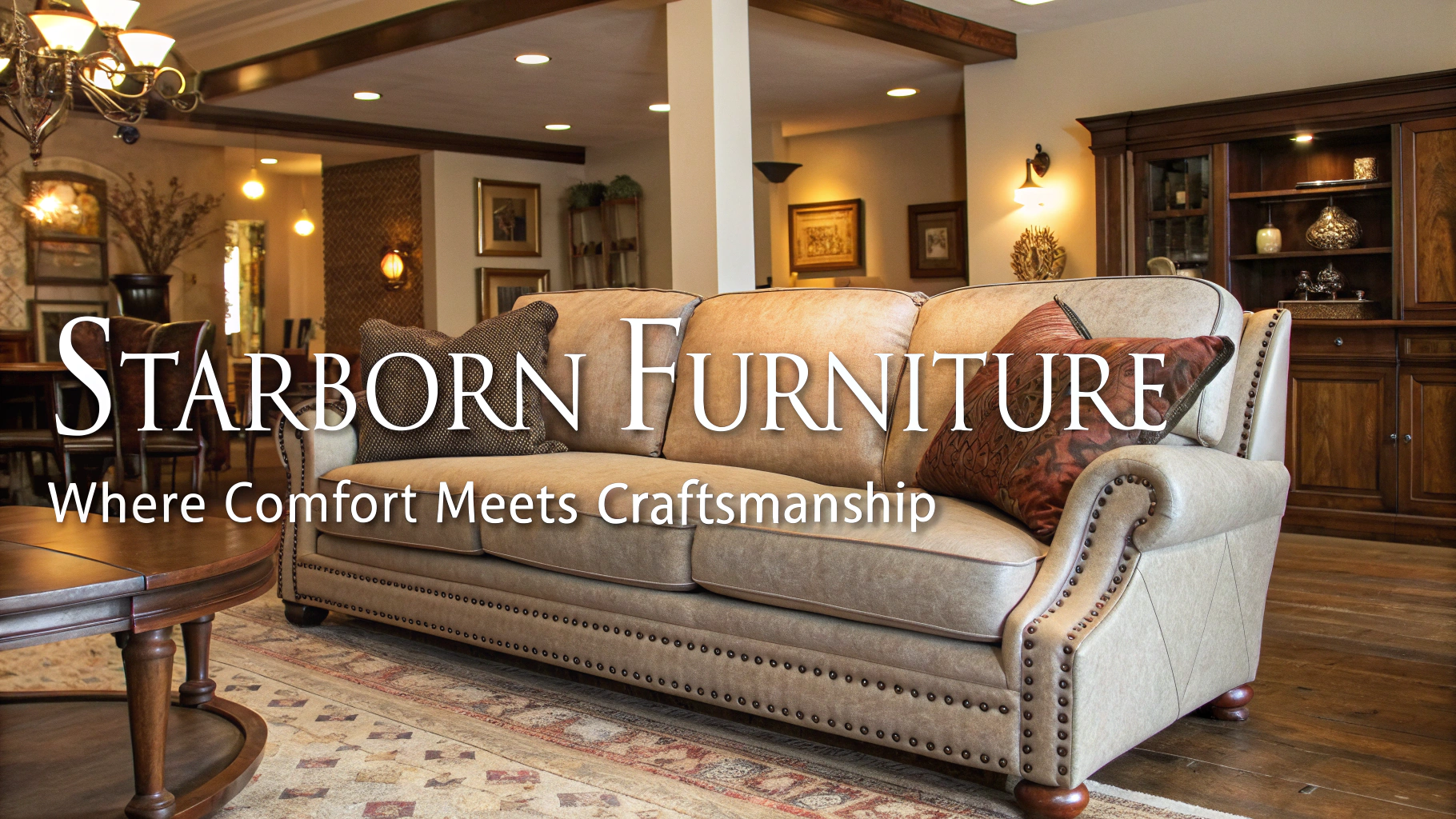
The process of crafting Starborn Furniture's sofas involves precision cutting, strict quality control, and innovative adaptations, ensuring compliance with international standards while accommodating diverse cultural styles. This integration of processes results in high-quality, durable, and comfortable sofas that meet the diverse expectations of our global clientele.
How Do Certifications Build Trust with Customers?
Certifications play a crucial role in alleviating common customer concerns about material origins and quality standards. Many European customers feel uncertain without proper certification, often fearing non-compliance with EN 12520/12521 standards. These standards ensure that the furniture used in their homes is safe and environmentally friendly.
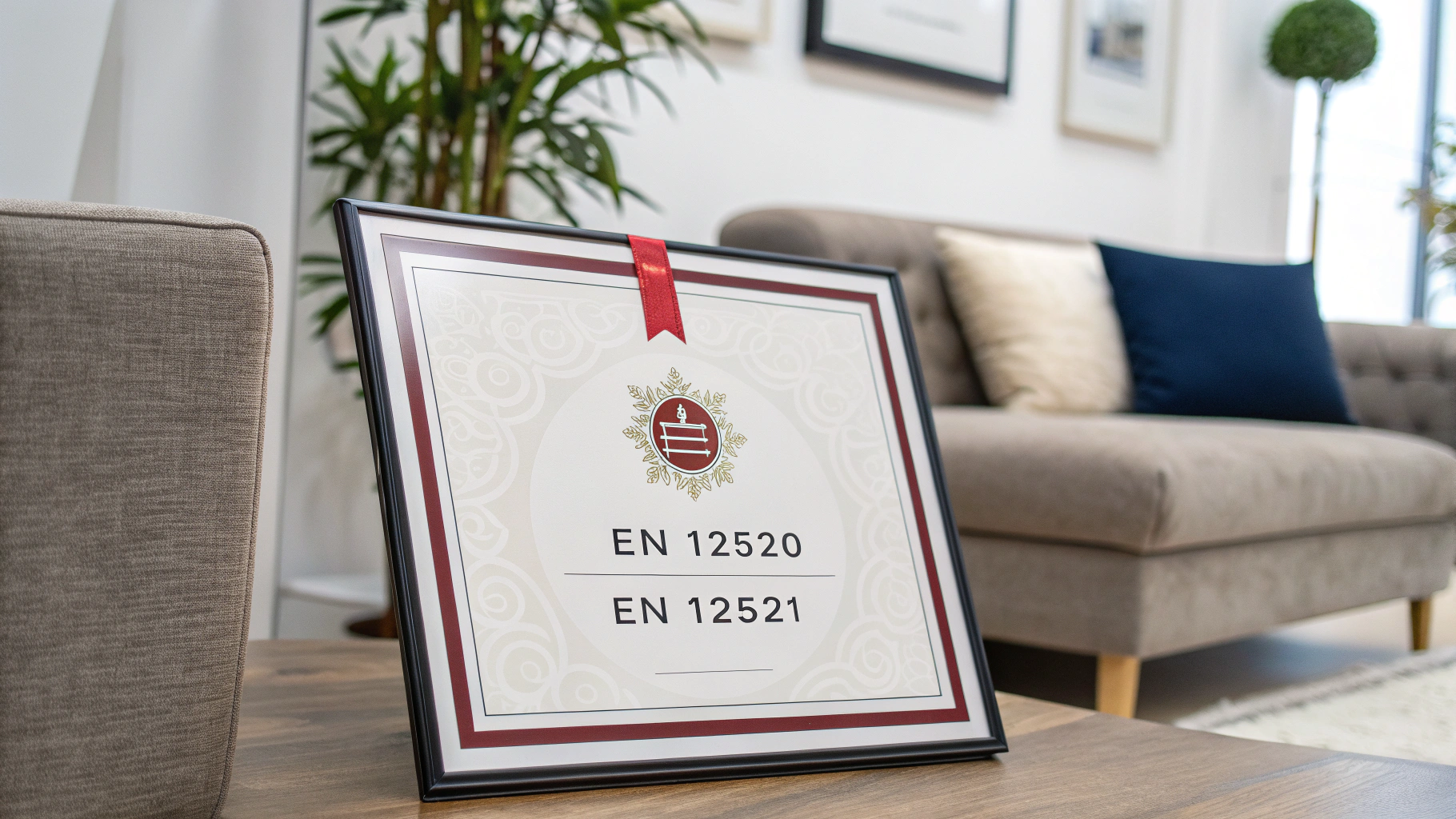
At Starborn Furniture, we rely heavily on our BSCI certification1 to combat these uncertainties. This commitment guarantees ethical sourcing and a strict adherence to EU standards. We believe in building a culture of transparency and trust. An independent retailer in Germany, showcasing our BSCI certification1 prominently in their marketing, saw a remarkable 20% increase in sales, proving the certification's significant value.
What Ensures Quality Control at Every Step of Production?
Quality control is necessary to build confidence among retailers who often hesitate due to transparency issues in production processes. Small retailers sometimes hesitate to place large orders without assurance of quality consistency, which can be a significant barrier.
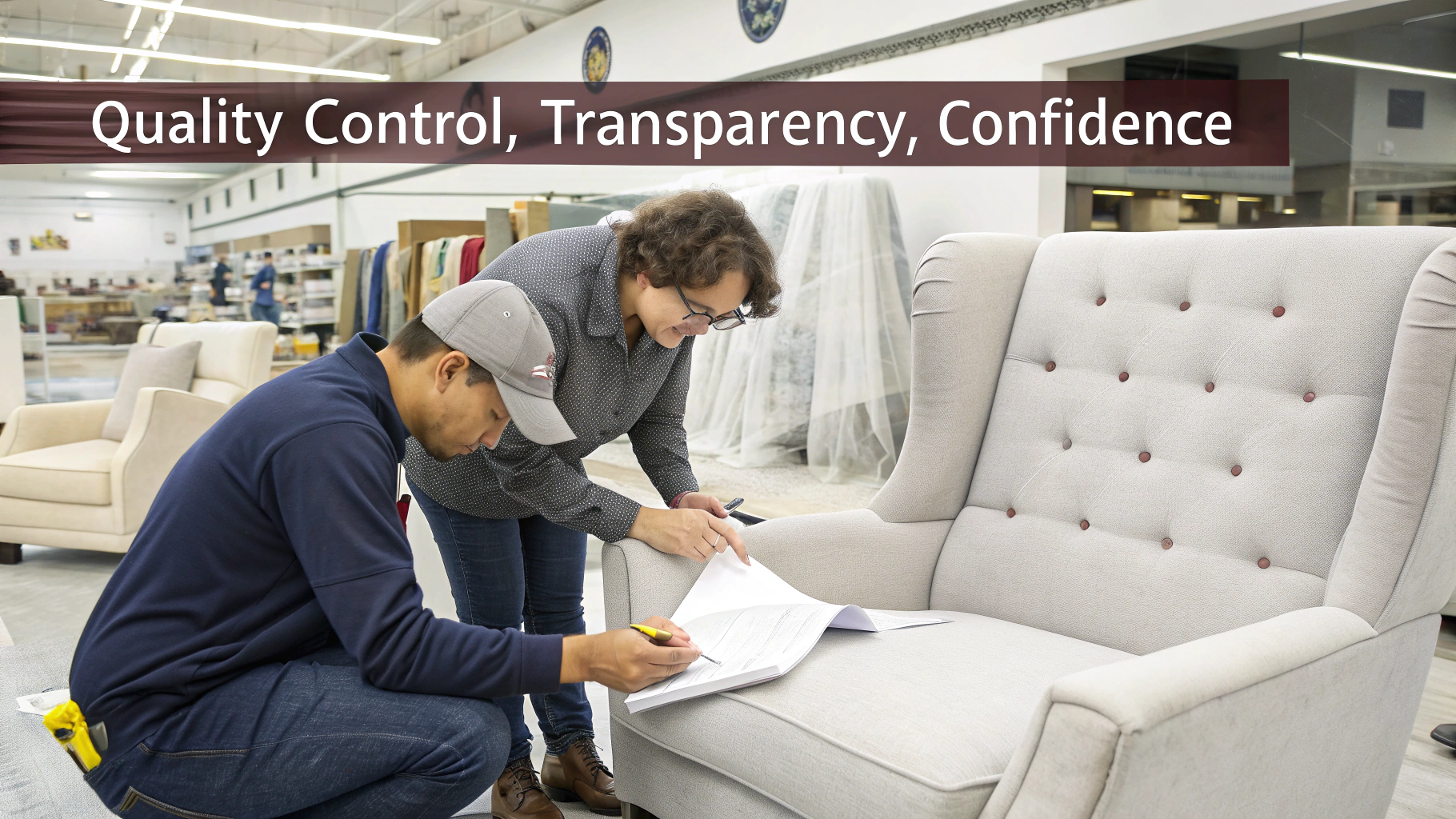
At Starborn, we aim to eliminate such uncertainties by providing a transparent production dashboard. This dashboard offers real-time updates and quality checks, ensuring that all stakeholders are well-informed. This transparency fosters trust and encourages stronger partnerships. Our collaboration with a UK designer led to aligning production schedules precisely to their needs, ultimately reducing defects and achieving a 15% faster lead time.
How Does Flexible Manufacturing Enhance Production Capabilities?
The traditional furniture industry often suffers from long lead times and inflexible production schedules, which frustrate designers eager to introduce their custom designs swiftly to the market. This inflexibility can stymie innovation and delay product launches.
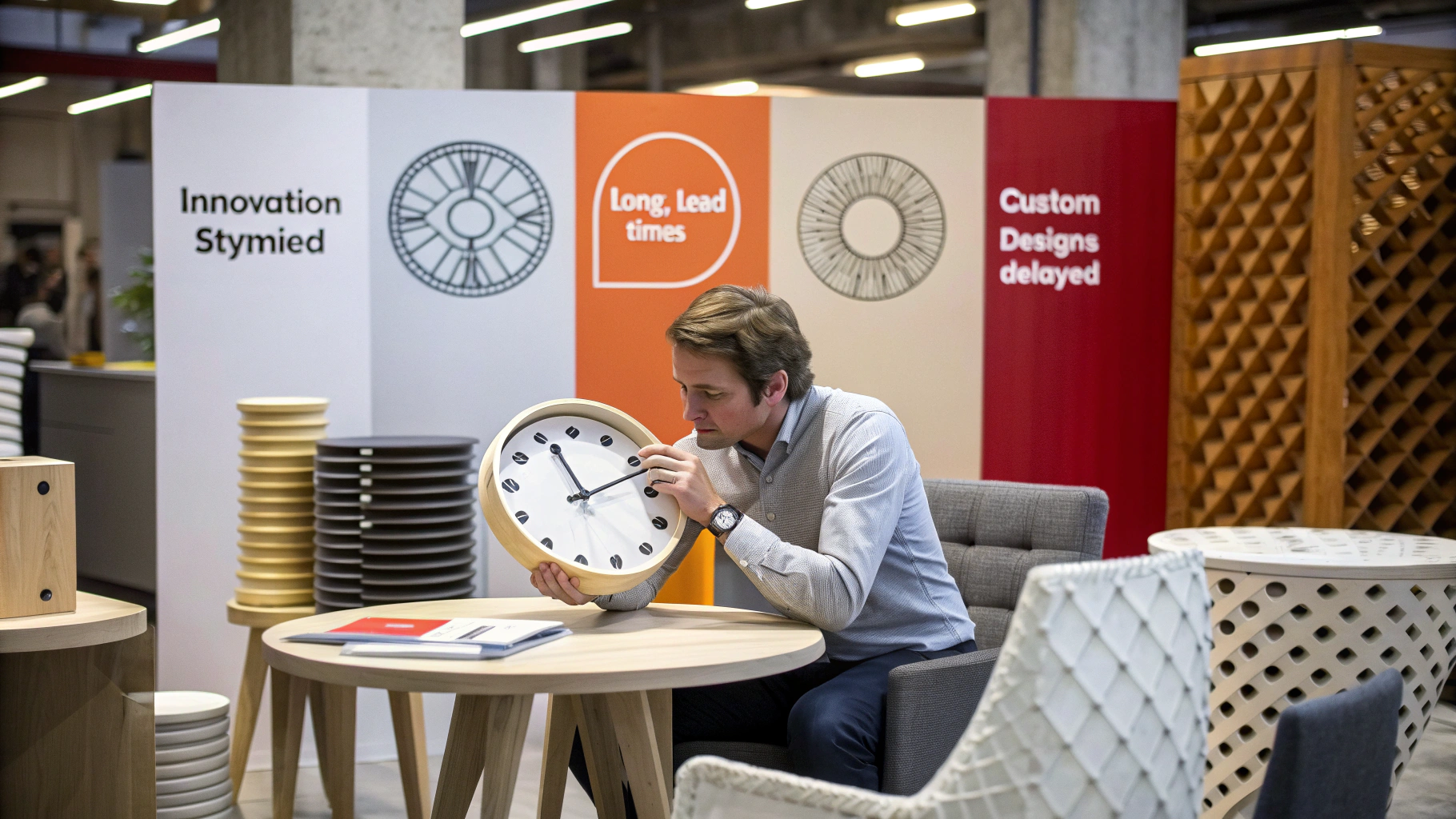
At Starborn, we counter these challenges through our C2M product selection platform. This platform allows us to adapt our production capacities on a monthly basis, offering quick turnarounds for small-batch designs. This flexibility has enabled designers to expand their product offerings by 25% and achieve a 10% sales boost due to the added variety and speed of getting new designs to market.
How Do Innovative Designs Align with Cultural Tastes?
In culturally rich markets like Dubai, balancing aesthetics with functionality is essential, especially considering Islamic cultural elements. Designers face challenges in creating pieces that respect these traditions while appealing to modern tastes.

By partnering with local designers and adhering to JIS standards, Starborn Furniture excels in offering products that align with Dubai's unique blend of modern and traditional aesthetics. This cultural adaptation approach has led to a 30% increase in foot traffic for a Dubai-based retailer who showcased our culturally curated collections, underscoring the importance of understanding local tastes.
How Does Starborn Ensure Supply Chain Transparency?
In the EU market, there is a continuous demand from retailers and consumers for transparency in product sourcing and manufacturing. A lack of clarity can often weaken trust and consumer confidence, posing significant hurdles for businesses.
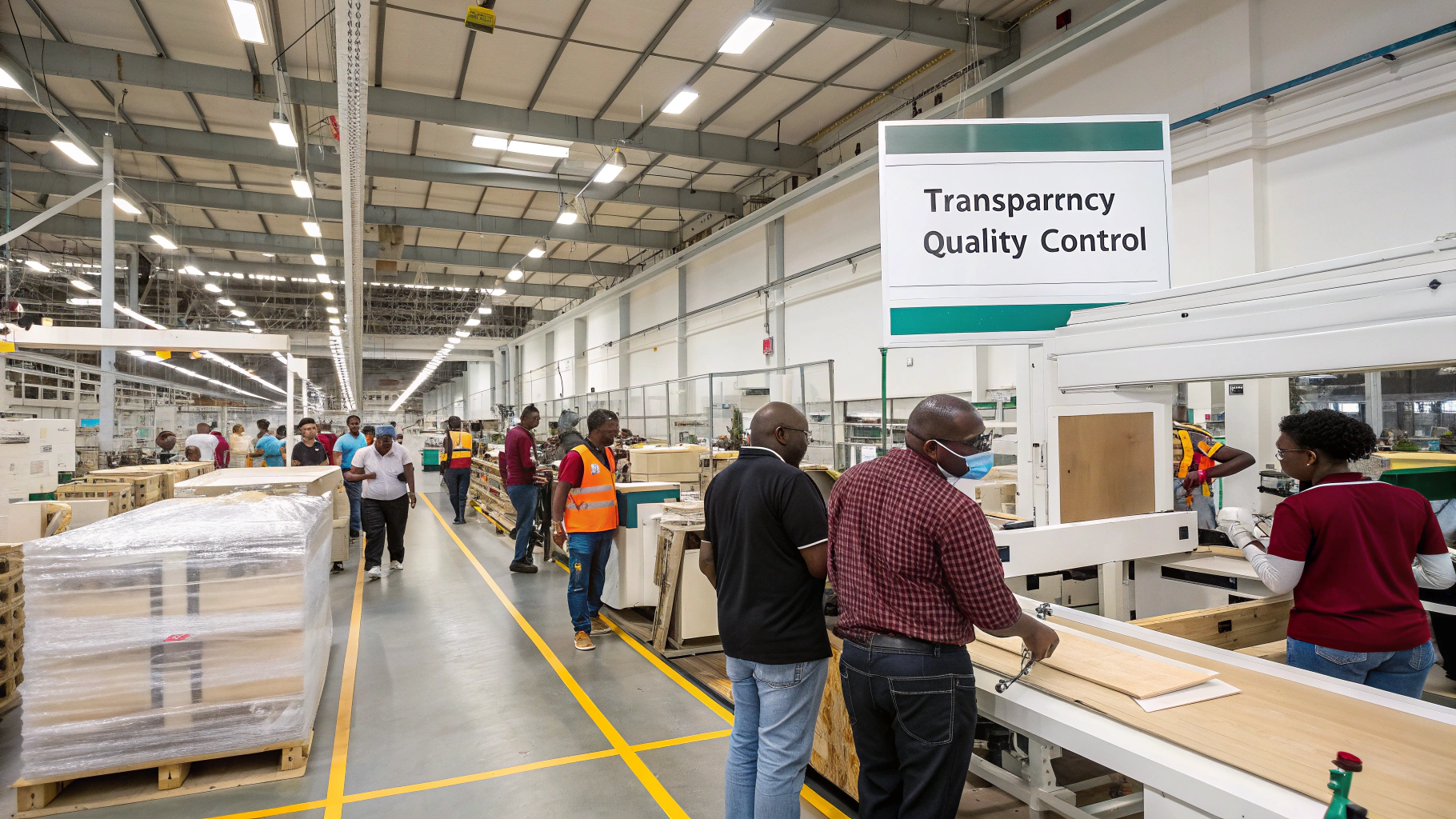
At Starborn, we prioritize transparency by maintaining comprehensive digital traceability records from raw material procurement to finished product delivery. Our commitment to open access ensures stakeholders remain informed and engaged, leading to stronger customer relationships. This transparency helped us achieve a 10% reduction in return rates, reflecting improved customer satisfaction.
What Role Does Sustainability Play in Starborn's Production?
Europe's environmentally conscious consumers are increasingly concerned with the ecological impact of their purchases. This focus on sustainability guides our practices at Starborn Furniture, pushing us to innovate and reduce our carbon footprint.
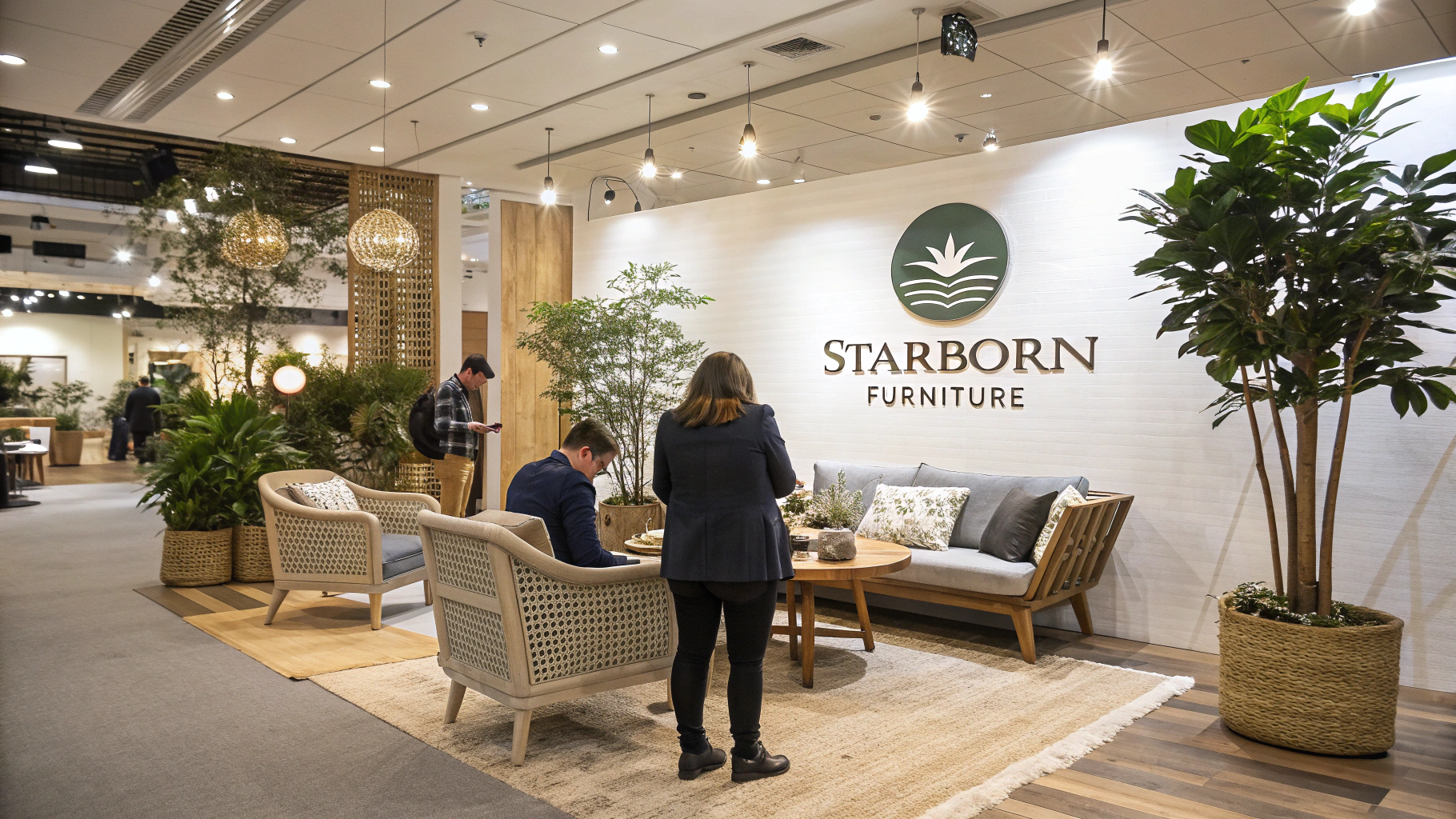
We use FSC-certified wood and eco-friendly materials in our production processes, demonstrating our commitment to sustainable manufacturing2. A French retailer noted a marked improvement in brand loyalty, experiencing a 15% increase in repeat purchases. This shift reaffirms that sustainability is not just an ethical choice but a beneficial business strategy.
How Does Ecological Collaboration Drive Innovation?
Coordinating design and production in a green-focused ecosystem remains challenging. Yet, seamless collaboration between designers, manufacturers, and retailers is necessary for holistic innovation and ecological value creation.
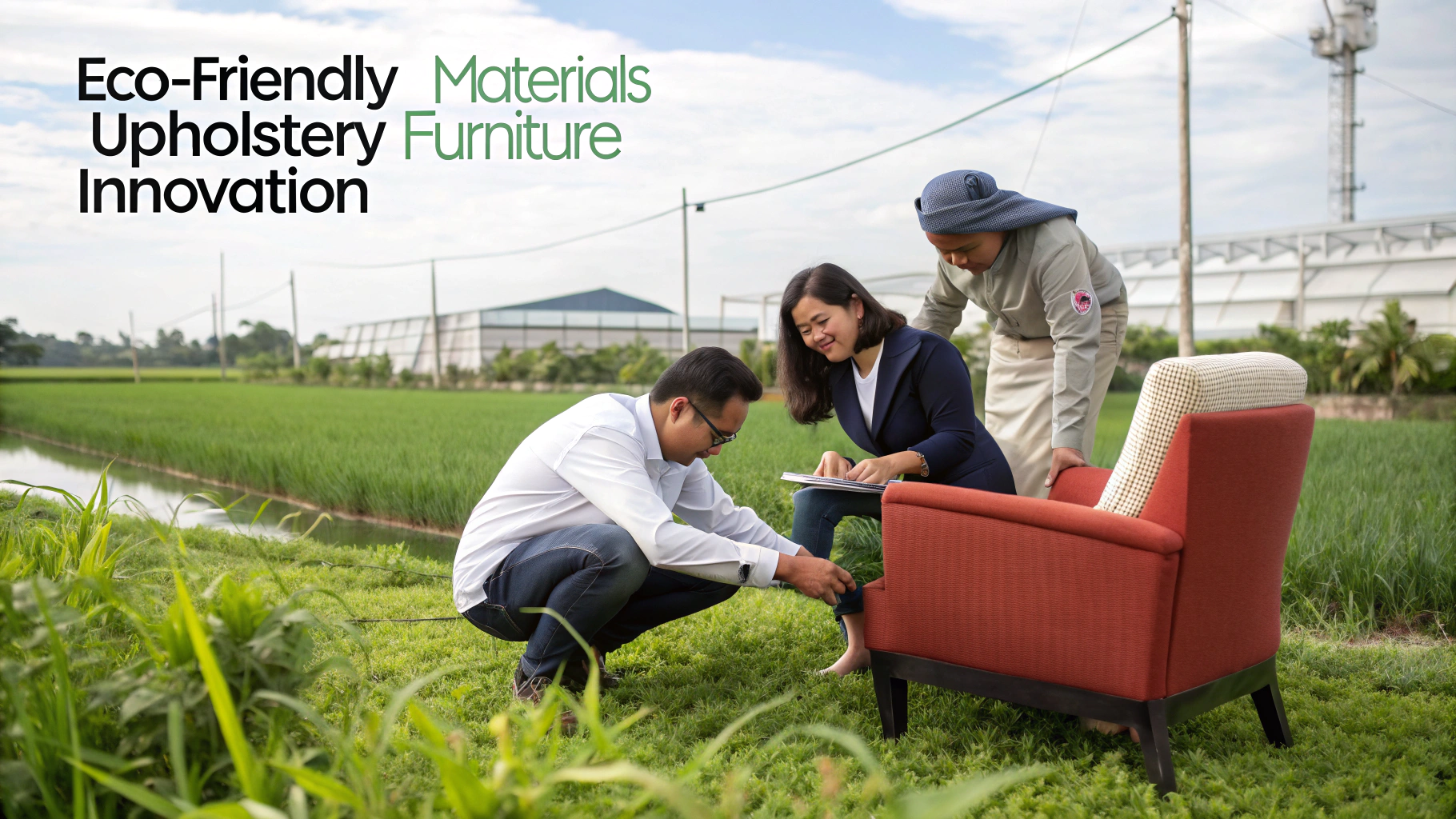
Starborn’s platform thrives on creating cross-functional collaborations that accentuate ecological value. The symbiotic relationship allows us to expedite design-to-production timelines while maintaining sustainability. Our eco-collection, launched in collaboration with French designers, achieved 20% higher margins. It’s a testament to the power of cooperative innovation and ecological focus.
Conclusion
Starborn Furniture expertly integrates certification, quality control, and innovation to craft exceptional sofas. Our processes ensure flexibility and cultural alignment while enhancing transparency and sustainability. Through collaboration, we adapt to market demands and environmental challenges, building trust and quality in every piece we create.

